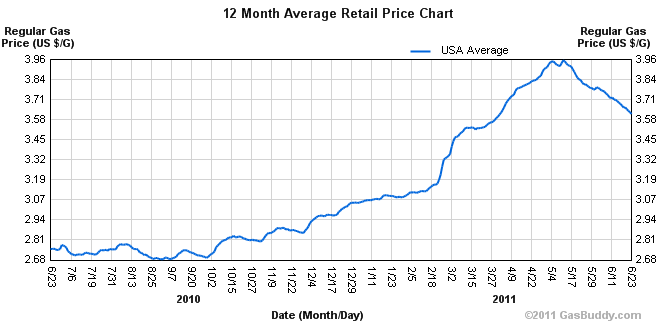Do you want the good news or the bad news? Let’s start with the good news. The good news is that the recent tumble in gas prices will alleviate pressures on the US consumer and stop the reallocation of spending into the black hole of Exxon Mobil’s income statement. If the price decline continues we should see some gains in other segments of consumer spending and subsequent economic growth. So, Ben Bernanke is right that the prices appear transitory. That’s the good news.
The bad news is that Ben Bernanke didn’t consider the possibility that the transitory prices might actually be caused by his monetary policies. So, unfortunately, the spending has been transitory as well (from your local shopping mall to your local Exxon Mobil).
Earlier this year, Deutsche Bank posted a simple rule of thumb for gas prices:
“Every one penny increase in gasoline is then worth about $1 billion in household energy consumption. (In decimal terms, it is actually $1.4 billion.)”
Over the course of QE2 we’ve seen a whopping $1.20 rise from the August low to the May high. That totals a $168 BILLION tax on the US consumer over this period. That’s a full $168B that went to the oil coffers and not into other more productive segments of the economy in the last year. And we wonder why there is a slow-down currently? No wonder the payroll tax relief appears to have been completely voided! It was more than entirely offset by the Fed’s policy that was supposedly helping to “fund” the tax cuts! Oh the irony!

Mr. Roche is the Founder and Chief Investment Officer of Discipline Funds.Discipline Funds is a low fee financial advisory firm with a focus on helping people be more disciplined with their finances.
He is also the author of Pragmatic Capitalism: What Every Investor Needs to Understand About Money and Finance, Understanding the Modern Monetary System and Understanding Modern Portfolio Construction.

Comments are closed.